Francesco Faccin reinvents an anonymous classic chair design
Francesco Faccin revises a traditional chair design for his project presented by Rome-based gallery Giustini / Stagetti
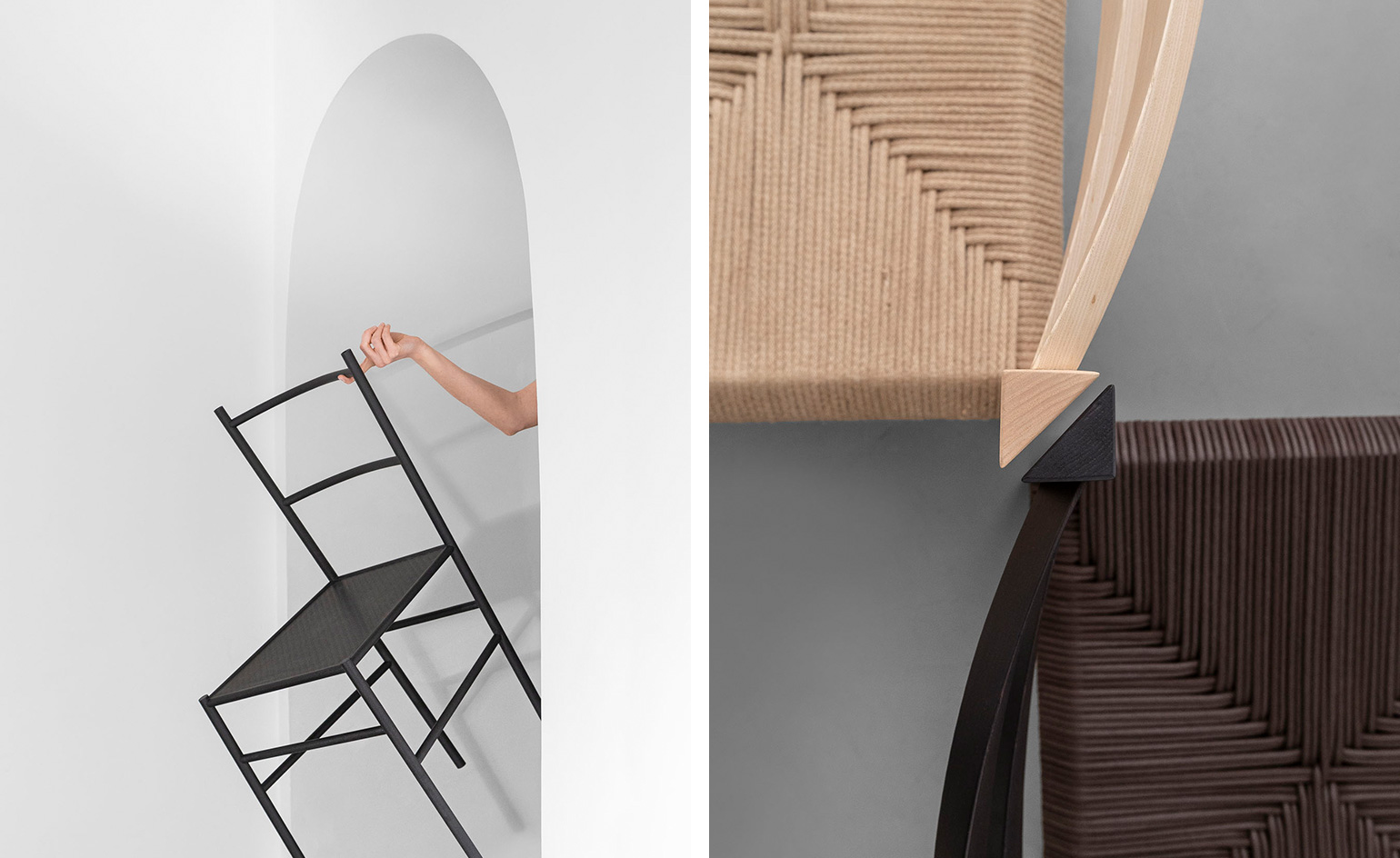
In a time when brand new objects could sometimes feel a bit obsolete, Italian designer Francesco Faccin has been focusing on reinventing a past design, giving it multiple spins. His latest project is titled ‘Anonimo Contemporaneo’, a moniker that describes his current quest to reinvent La Romanella, a traditional piece of anonymous design popular across Mediterranean countries. It’s the simplest archetypal chair featuring a structure supporting a woven seat – a piece he started researching while he was working as a guest at Rome’s American Academy.
The discovery of this piece is a fascinating anecdote for Faccin. ‘I found this chair in 2013, in the last remaining active workshop in via dei Sediari in Rome,’ he says. ‘I immediately thought that 2000 years ago, I could have likely seen the same workshop on the same site. The craftsman told me that there were almost identical depictions of this type of chair in various frescoes from Pompeii: A product that has remained in production for 2000 years? Incredible!’
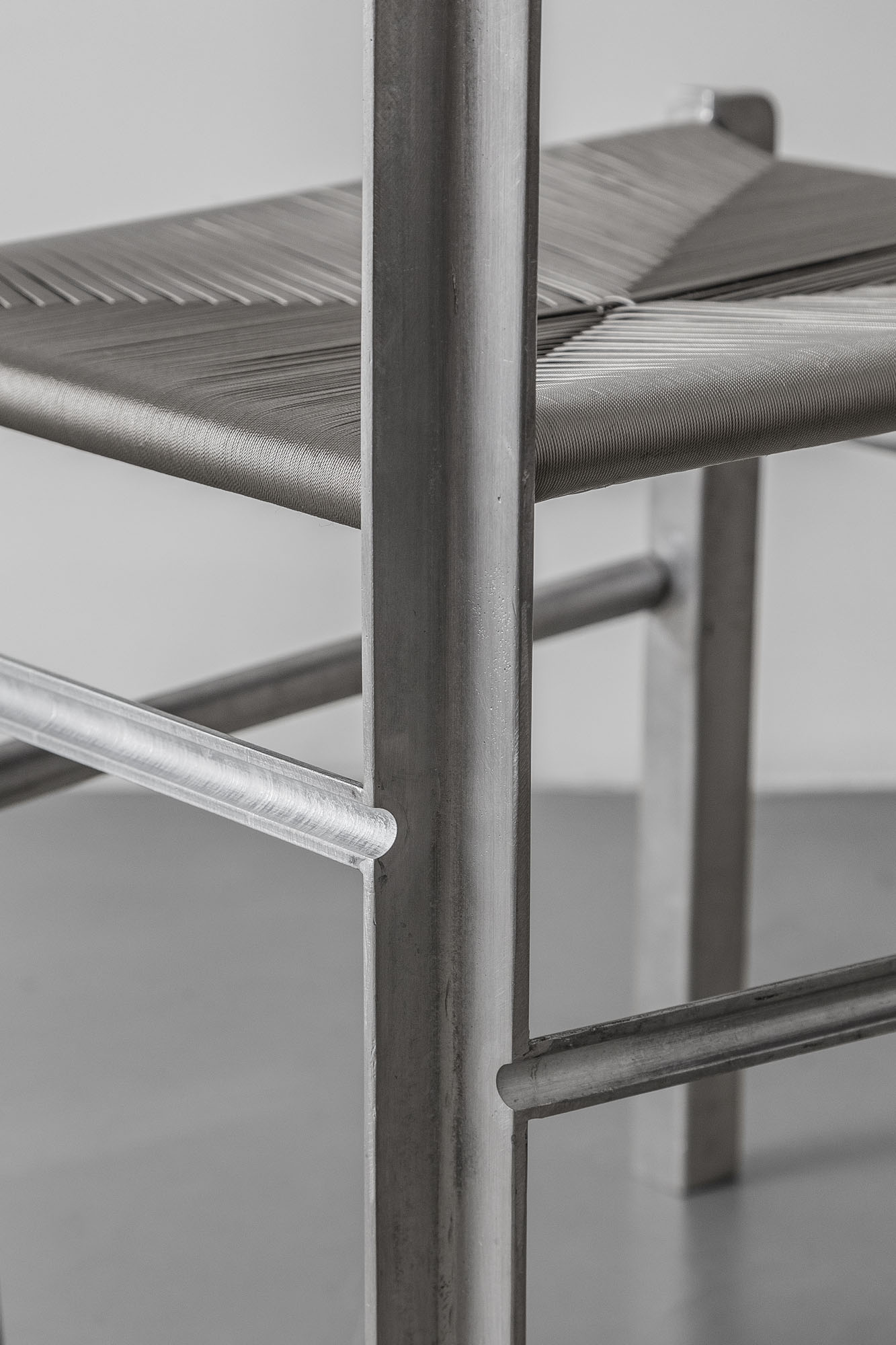
Describing it as ‘an object that is apparently unchangeable because it is already perfect,’ Faccin set out to experiment with the chair’s structure using different materials. The collection is made up 12 chairs, all produced by different artisans across Italy, serving as a showcase for the country’s manufacturing panorama.
Each iteration features a single material, from aluminium to carbon fibre and including different kinds of wood both natural and lacquered, demonstrating the brilliant adaptability of the design. The woven seats (originally in wicker) are made of materials such as leather and aluminium, and Faccin also reduced the design to a lower lounge version. ‘I’m not dreaming of some mythical primitivism or a return to the past,’ he says. ‘But rather, of a potential model from which to reinvent contemporary design. A solid object that is apparently unchangeable because it is already perfect.’
Presented by Rome-based gallery, Giustini / Stagetti, the project offers a novel point of view on the role of the designer: not simply a creator of the new, but a figure that blends research, history and the future of past design.
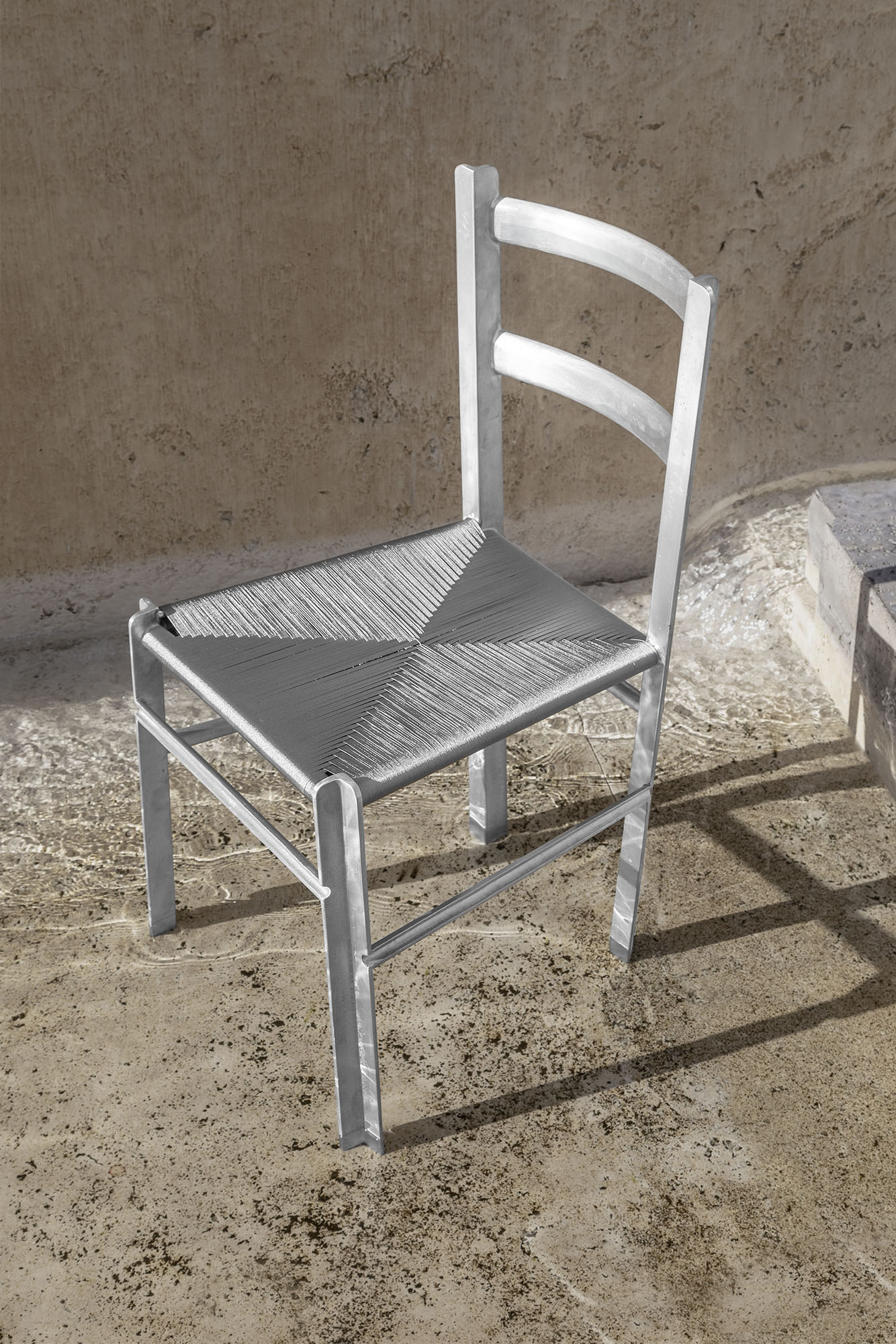
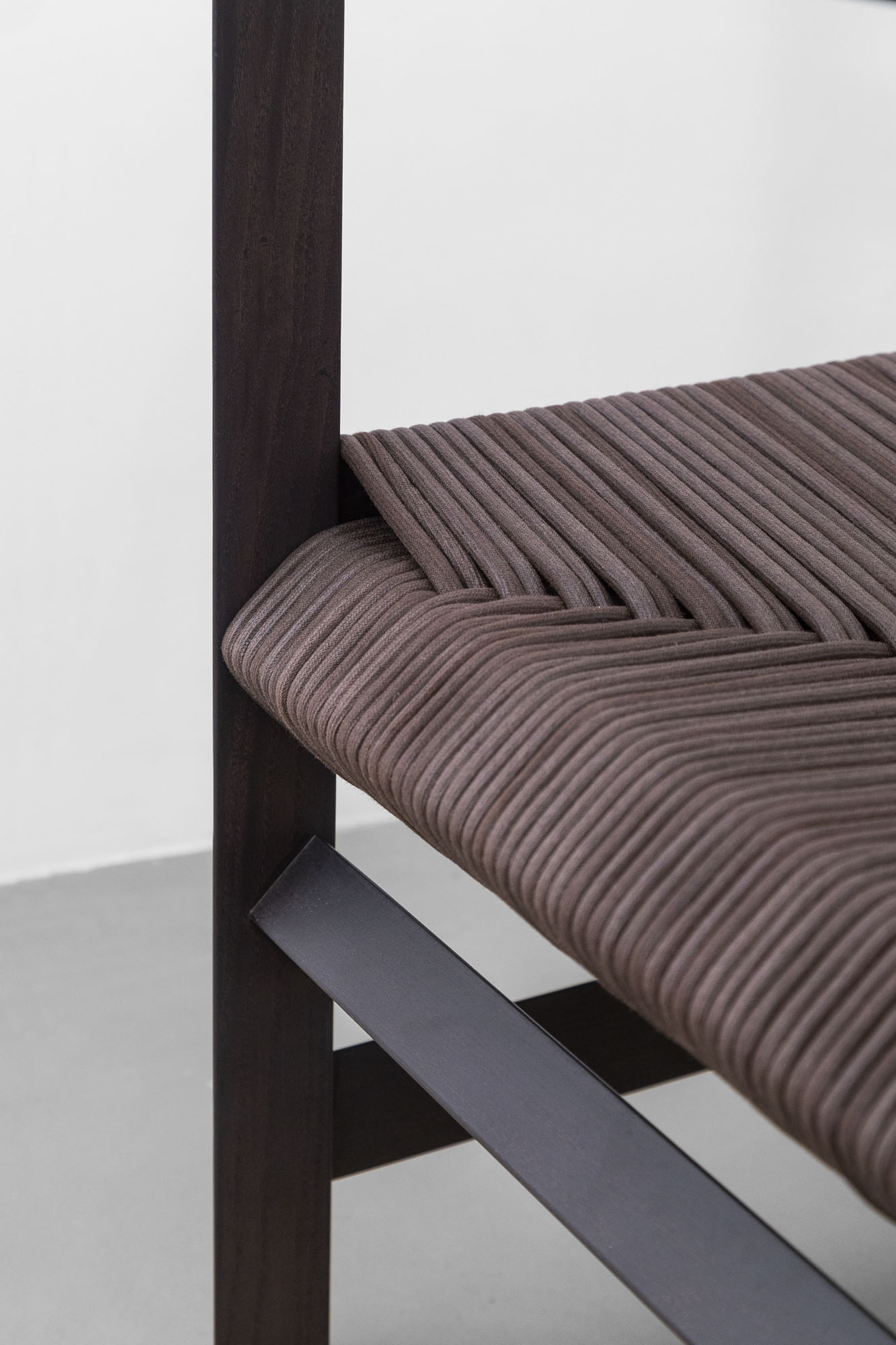
INFORMATION
Wallpaper* Newsletter
Receive our daily digest of inspiration, escapism and design stories from around the world direct to your inbox.
Rosa Bertoli was born in Udine, Italy, and now lives in London. Since 2014, she has been the Design Editor of Wallpaper*, where she oversees design content for the print and online editions, as well as special editorial projects. Through her role at Wallpaper*, she has written extensively about all areas of design. Rosa has been speaker and moderator for various design talks and conferences including London Craft Week, Maison & Objet, The Italian Cultural Institute (London), Clippings, Zaha Hadid Design, Kartell and Frieze Art Fair. Rosa has been on judging panels for the Chart Architecture Award, the Dutch Design Awards and the DesignGuild Marks. She has written for numerous English and Italian language publications, and worked as a content and communication consultant for fashion and design brands.
-
 Put these emerging artists on your radar
Put these emerging artists on your radarThis crop of six new talents is poised to shake up the art world. Get to know them now
By Tianna Williams
-
 Dining at Pyrá feels like a Mediterranean kiss on both cheeks
Dining at Pyrá feels like a Mediterranean kiss on both cheeksDesigned by House of Dré, this Lonsdale Road addition dishes up an enticing fusion of Greek and Spanish cooking
By Sofia de la Cruz
-
 Creased, crumpled: S/S 2025 menswear is about clothes that have ‘lived a life’
Creased, crumpled: S/S 2025 menswear is about clothes that have ‘lived a life’The S/S 2025 menswear collections see designers embrace the creased and the crumpled, conjuring a mood of laidback languor that ran through the season – captured here by photographer Steve Harnacke and stylist Nicola Neri for Wallpaper*
By Jack Moss
-
 Maison et Objet: Wallpaper's 15 highlights from France's leading homes and interiors fair
Maison et Objet: Wallpaper's 15 highlights from France's leading homes and interiors fairThe design year has officially begun with the launch of Maison et Objet. Our on-the-ground correspondent reports on its standout moments
By Anna Sansom
-
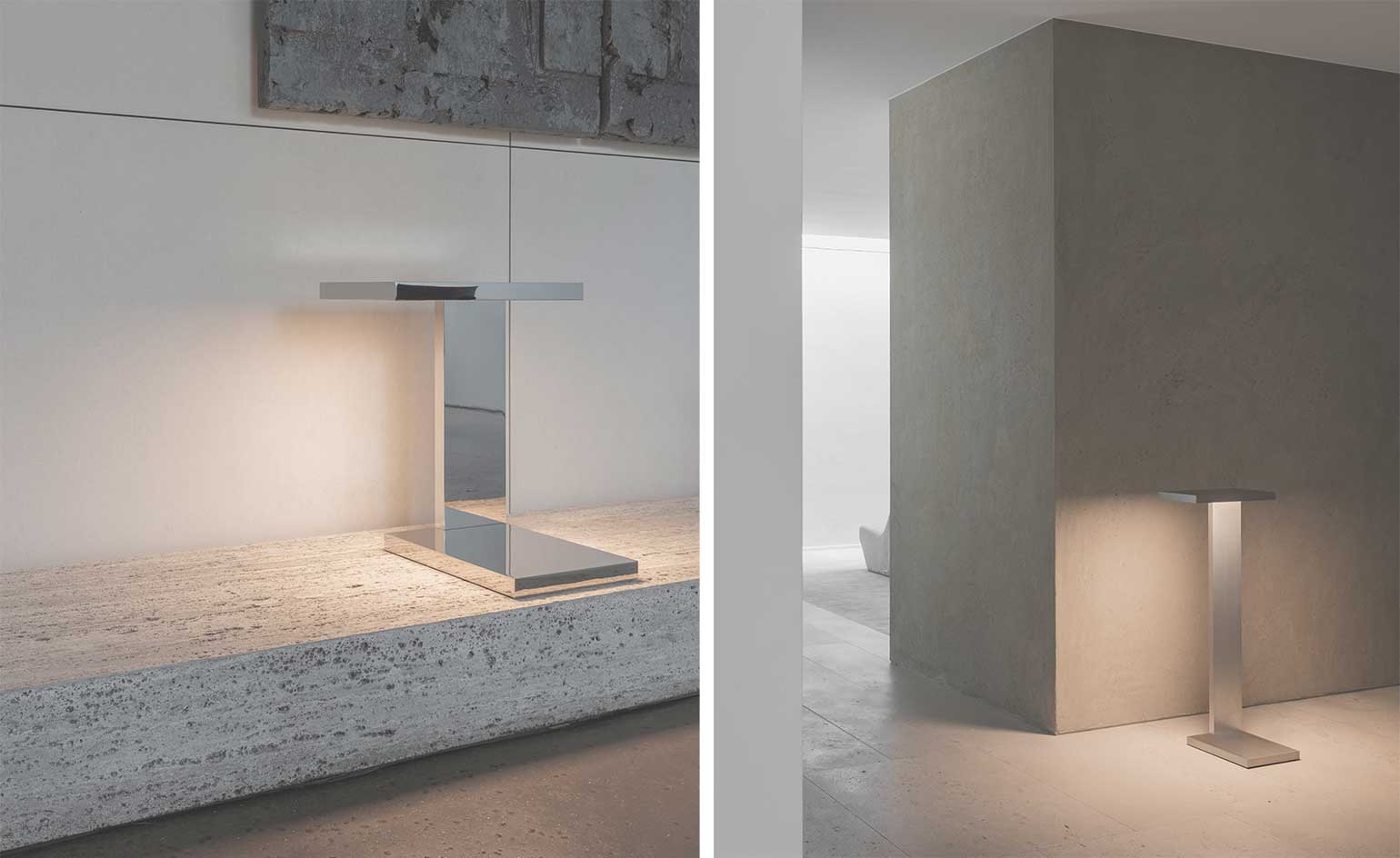 Ozone and Dominique Perrault Architecture create a series of monumental aluminium lamps
Ozone and Dominique Perrault Architecture create a series of monumental aluminium lampsOzone worked with Dominique Perrault and his partner Gaëlle Lauriot-Prévost to present the ‘Furtiv’ collection, featuring a series of aluminium lamps inspired by the architect's Bibliothèque François-Mitterrand in the 1990s
By Amy Serafin
-
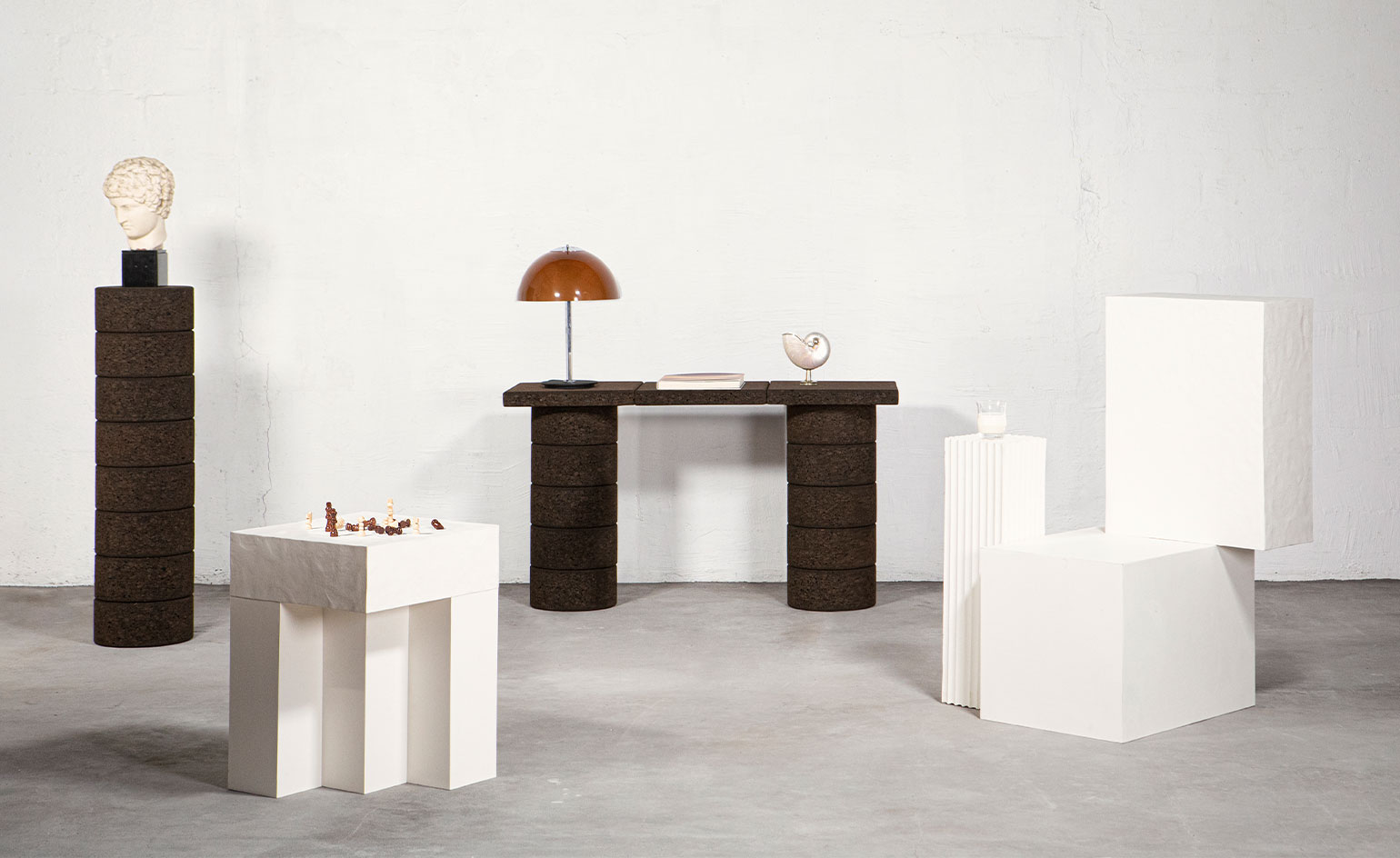 Mono Editions launches furniture in cork and paper pulp
Mono Editions launches furniture in cork and paper pulpLaunched with a pop-up in Paris (23-27 March 2022), Mono Edition presents modular designs by architects, crafted from sustainable single materials
By Rosa Bertoli
-
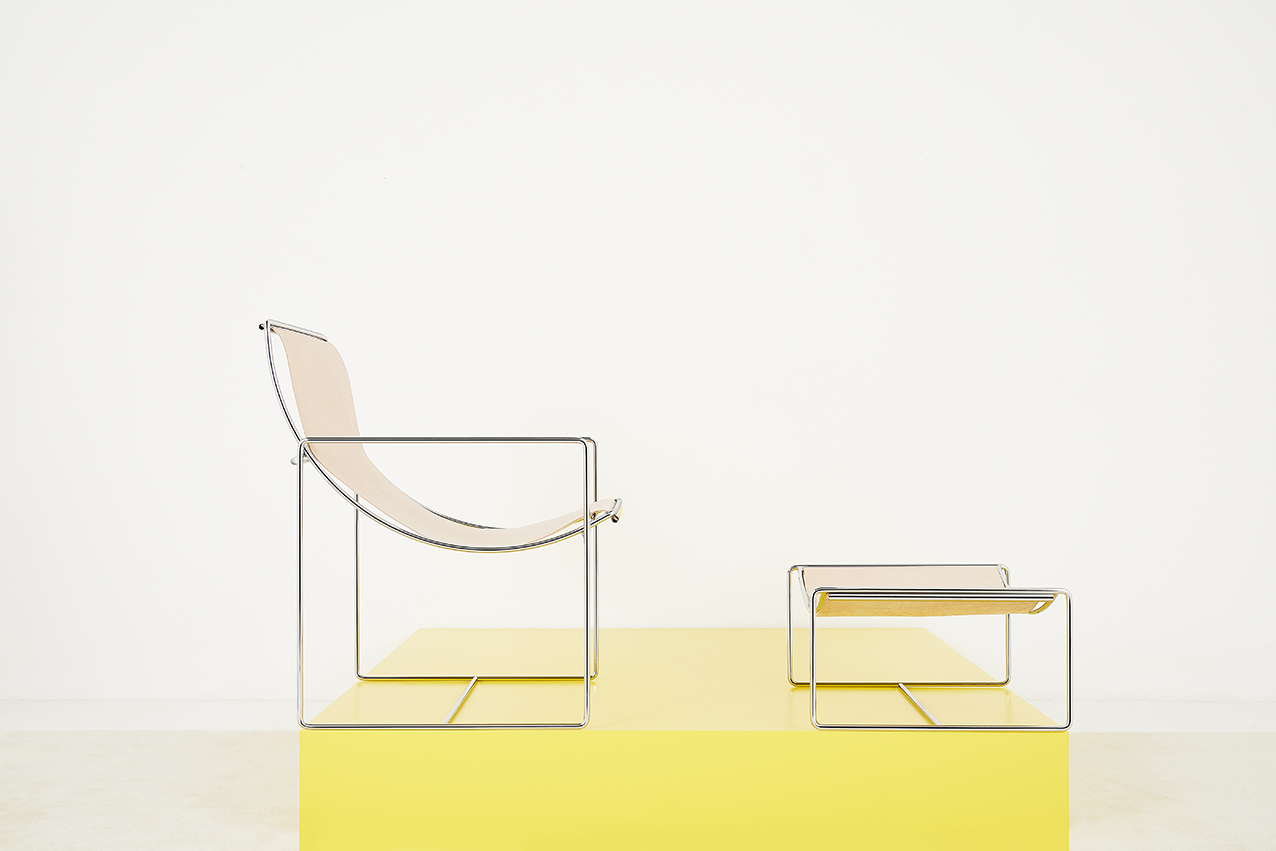 Odile Mir’s granddaughter is reissuing her 1970s French furniture
Odile Mir’s granddaughter is reissuing her 1970s French furnitureParisian designer Léonie Alma Mason launches LOMM Editions – a new brand presenting 1970s furniture designs created by her grandmother, nonagenarian artist Odile Mir
By Rosa Bertoli
-
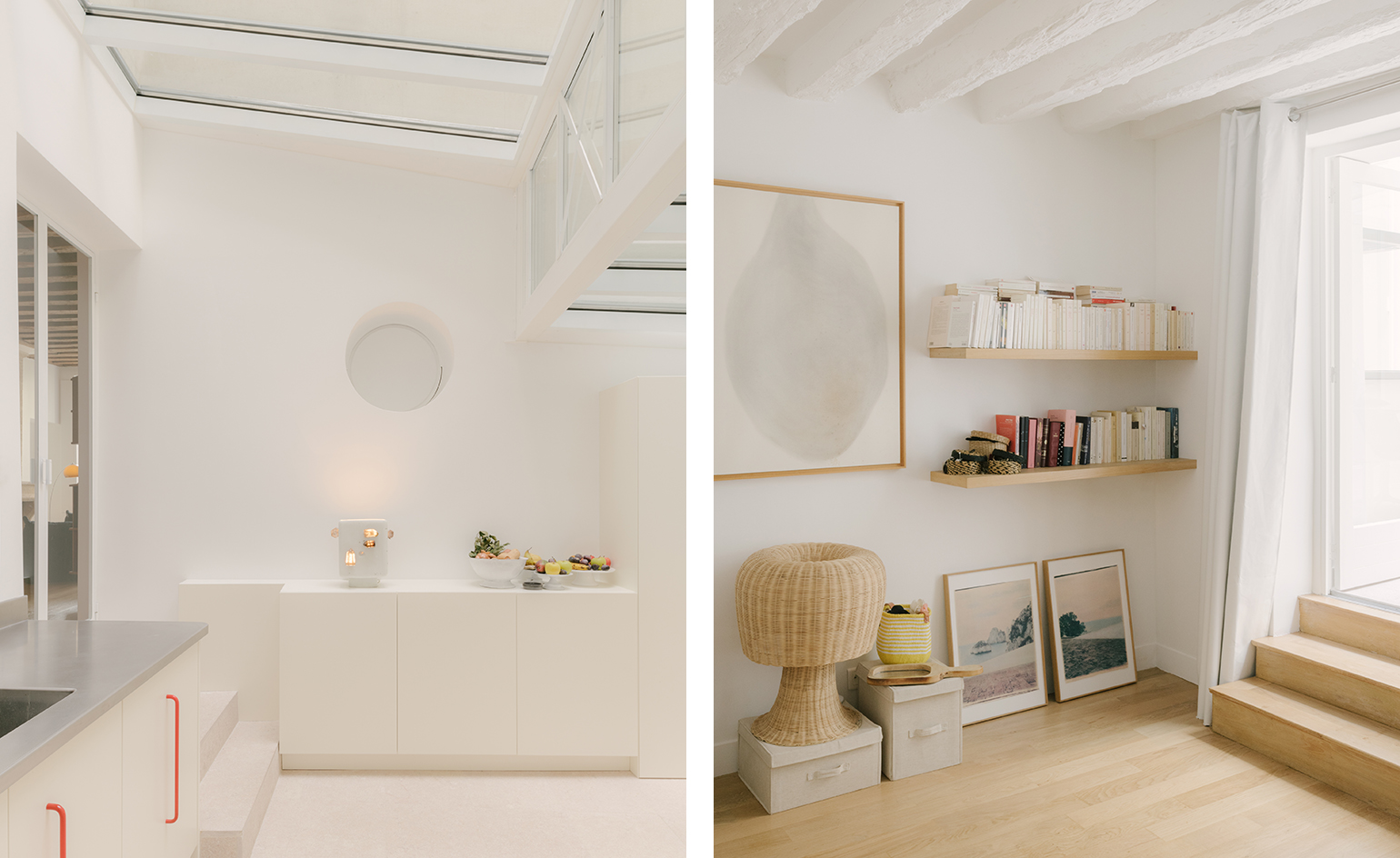 Historic Paris apartment gets wrapped in soft minimalism
Historic Paris apartment gets wrapped in soft minimalismArchitect Saba Ghorbanalinejad reworks the historic architecture of this Le Marais apartment for the 21st century
By Ellie Stathaki
-
 Pierre Jeanneret’s midcentury designs for Chandigarh get an LA audience
Pierre Jeanneret’s midcentury designs for Chandigarh get an LA audienceBy Ali Pechman
-
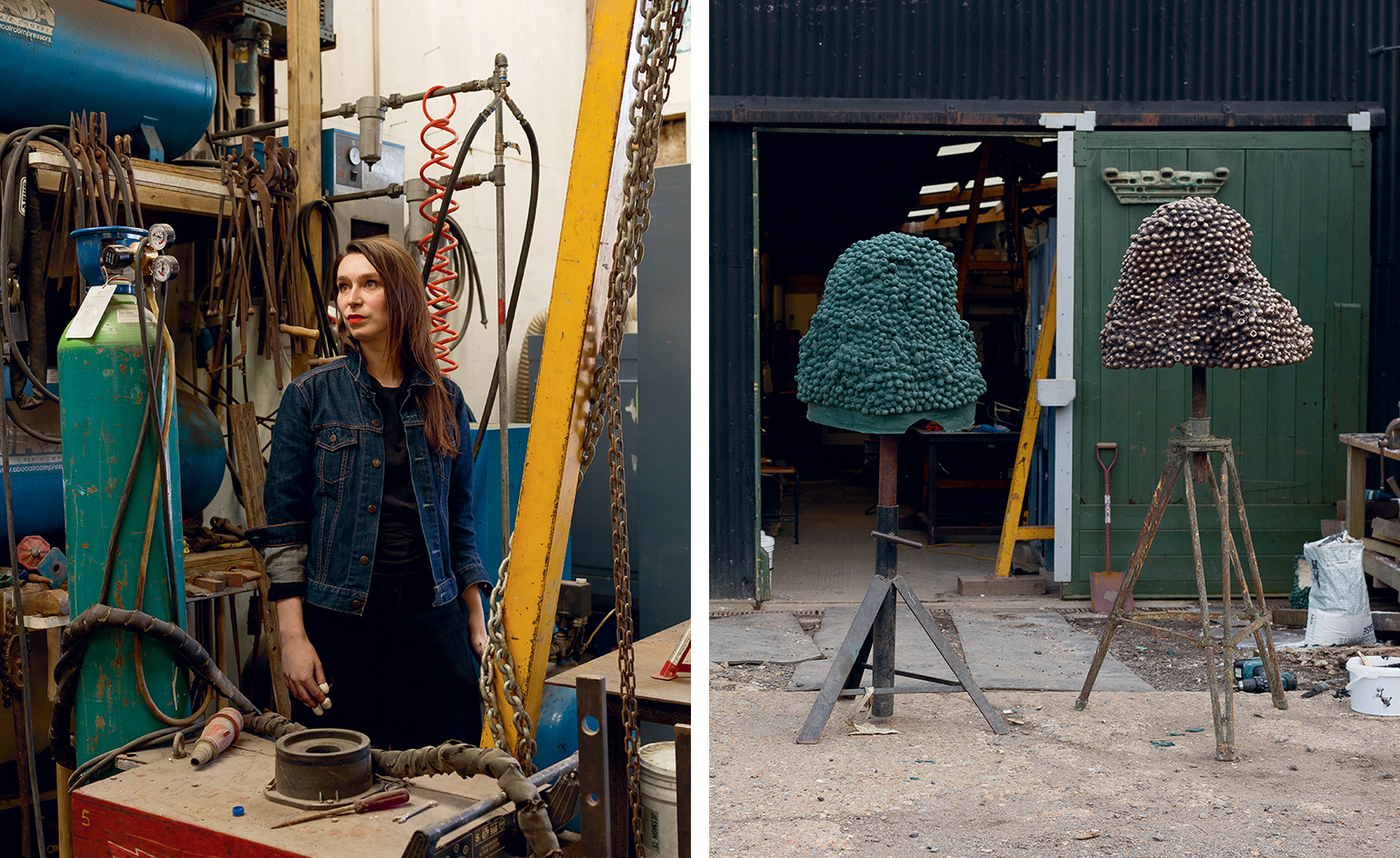 French designer Marlène Huissoud creates silkworm cocoon set with London Bronze Casting
French designer Marlène Huissoud creates silkworm cocoon set with London Bronze CastingBy Rosa Bertoli
-
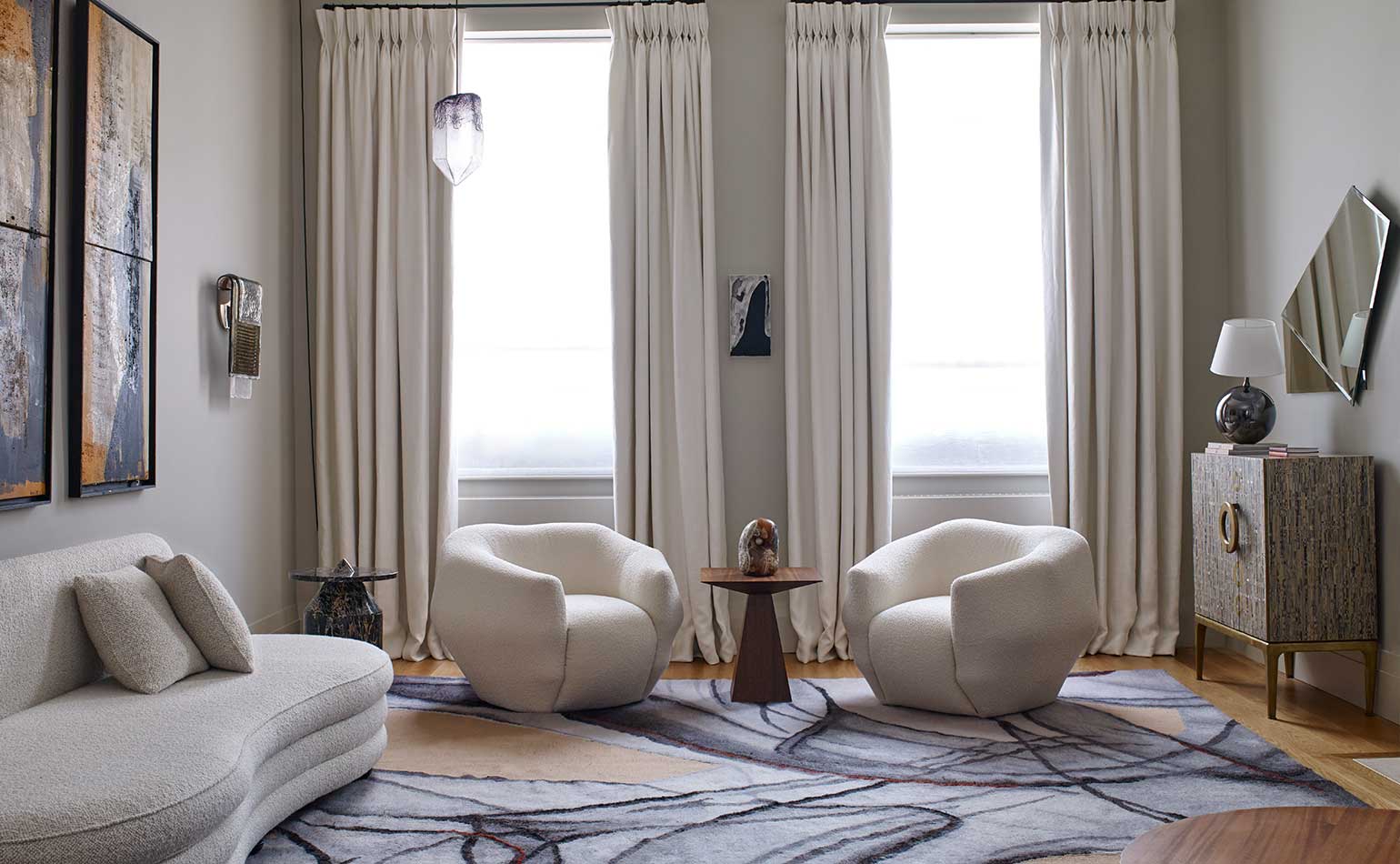 The Invisible Collection opens discreet London showroom
The Invisible Collection opens discreet London showroomBy Emma O'Kelly